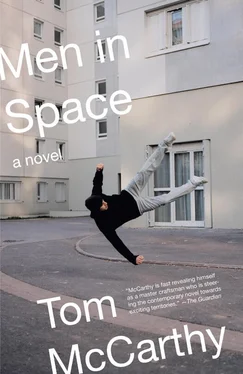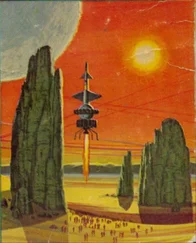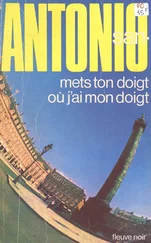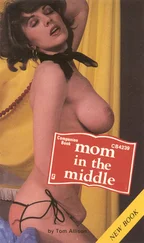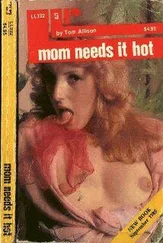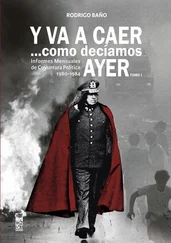Must run now. Expect crate. Thank you for paying phone bill. Depart for Tallinn tomorrow. Love you. Leave the windows dirty .
Joost xxxxxxx
* * * * *
The cell has one bed and one toilet. No windows. Anton thinks it’s on the ground floor, although he couldn’t say why. Was he led up some steps? Helena and Ilievski were separated from him before they’d left Korunní. Each in their own car, he imagines, so they couldn’t talk together. Helena would have been released almost immediately, but Ilievski could be further down this corridor, in the next cell; or he could be somewhere else entirely, some other station. At one point a little earlier he heard a dog barking: could have been Rambo. Do they put dogs in cells as well? Does Rambo count, by proxy, as a criminal dog? Or do they throw him in with all their sniffers and Alsatians, in some big pen, let him fend for himself? …
Anton imagined he’d be thrown in, too, with mongrel humans: drug addicts and drunks and shoplifters and Gypsies who’d already have established a mute hierarchy among themselves, or at least carved the cell up into patches, territories; who’d look him over as he meekly edged his way between them, sizing him up, sniffing him, and know immediately that he’d never been arrested before, harass him, go through his pockets to take what the police hadn’t already relieved him of. But as it turns out, he’s alone. He should stretch out on the bed and get some sleep, but he’s much too cranked up for that; he hasn’t even sat down in the several hours he’s been here. He’s spent the whole time pacing around the cell, trying to get a sense of where things stand …
He’s been caught with a stolen work of art: that must be serious. One from another country too: must make it worse — his own country to boot, from which he’s emigrated, defected. Will they rescind his refugee status, send him back? If he pleads guilty, which of course he won’t … Where’s Michael Branka? Someone must know by now that they’ve been arrested, Janachkov or Milachkov or someone, and will have phoned up Branka. How many hours has he been here? He wasn’t wearing his watch when the police came; it was lying beside the bed, on that table. Will anyone have closed the flat’s door? Is the television still on, the game long since finished, cartoons or some sitcom playing, canned laughter lost on empty chairs and sofa? Will they have arrested Ivan Maňásek as well? The artwork was found on his own property: that must be serious. He’s going round in circles physically as well as mentally. It’s got so that particular objects have associated themselves with particular elements of the situation: the bedpost with Ilievski, the Formica floor with the Korunní neighbours … If he tries to break the cycle, cut across it by stepping diagonally from one point to another, he just jumps to another part of the same quandary, not out.
The door is the most frightening point. Anton skirts past it each time, and tries not to keep his back turned on it for too long. The door represents everything he’s faced with, the procedure waiting out there to descend on him. He imagines pencils being sharpened, typewriters being threaded with new ribbons, secretaries flexing fingers as they prepare to have charge sheets dictated to them, courtroom benches being dusted, prison vans having their engines serviced, tyres pumped up, oil changed. He’ll have to face it all soon, step out into it and face it. It’s like those dreams he had when he’d just been granted his refereeing licence: he’d be out there on the playing field, whistle clenched between his teeth, cards stiff in his shirt pocket and the game would be flowing all around him — and then something weird would happen that he didn’t understand. Something to do with engineering or his family or who knows what would edge its way into the game and become part of it, an incident requiring a decision one way or another, fair or foul. He’d fumble around for his rule book and find that he’d left it in the changing room, behind the wooden slats or in the showers or … Only now, it’s not him who’s charged with the responsibility for making the process work. This is more like a bullfight: all the little men with feathery dart-like arrows and the squat, stout men on padded horses and the men with capes and then the one man with the sword, the victim’s nemesis, all working together, playing one game whose rules they know and understand, and the bull — him — playing another game, pure survival. Anton thinks this through, this whole analogy, and finds that he’s stopped circling the room: the bullfight image, strangely, terrifies him less than the dream-football one — even though he knows the bull dies and the referee doesn’t …
Motionless now, Anton tries to empty his mind completely, to start from nothing and build up. He stands on the formica floor. He is a human in a cell. The cell has one bed, one toilet, no windows. It could be any space. It could be a hospital room, a lecture hall, a street or a sky beside a mountain, like where the saint is in that picture. There’s no essential difference: you’ve got a space, and then a person in it. The rest is contingent: all the events and decisions and complications that have led to this person being here, all the reactions and solutions that might lead him out of it again. He thinks of mystic monks. They lived their whole lives in cells like this; before was a blur of childhood, out again just darkness, death. He’ll leave this cell alive, but it’s not clear how. There are those procedures that he’ll have to pass through, like that labyrinth Helena was talking about — but he should think of them as being exchanges . They’ll present him with questions, he’ll surrender information in return and, according to the value of his information, progress through the labyrinth. Transfers of energy, like engineering — or like a game. He doesn’t know the rules but will intuit them. I will intuit the rules , he intones. I will intuit … But when he tries to factor the specifics back in, the whole thought-circuit overloads and he can feel his heart thump in his chest, blood racing down his arms …
Footsteps have been coming and going all the time he’s been here — but these ones right now seem meant for him, their rhythm easing off as they approach his cell; then there’s jingling, contact, a metallic yielding as the lock clicks and turns. Anton sits down on the bed and then stands up again immediately as a uniformed man steps into the cell and asks him to accompany him and his colleague who’s standing by the door. He doesn’t say where. They lead him down the corridor, then down a flight of stairs, then through another corridor into another room. This room’s different: no bed, no toilet, still no window — but there’s a desk or table in the middle. In front of the table are two chairs; behind it, one. The uniform who spoke to him before tells him to sit down on the single chair. He does so and both uniforms walk out, closing the door.
Anton sits still, alone again. He wants to get up, move around, think — but then what if they come back and find he’s disobeyed them? The footsteps he’s listening to now aren’t the two uniforms walking away; they’re two new sets, growing louder, nearer. The door opens and two other men come in. One is in his fifties, portly, with tufty grey hair retreating up his crown. Anton saw him earlier, talking into a radio in Korunní as he was bundled into the car. In one hand he holds a clipboard and a pack of Sparta; with the other he takes one of the two chairs facing Anton and pulls it away from the table towards the room’s corner before sitting down on it. He slides a metal pen out from under the clip and taps its top against the paper on his board so that the point comes out. When he’s checked it’s working properly, he knocks a Sparta from the packet and lights it up.
Читать дальше
